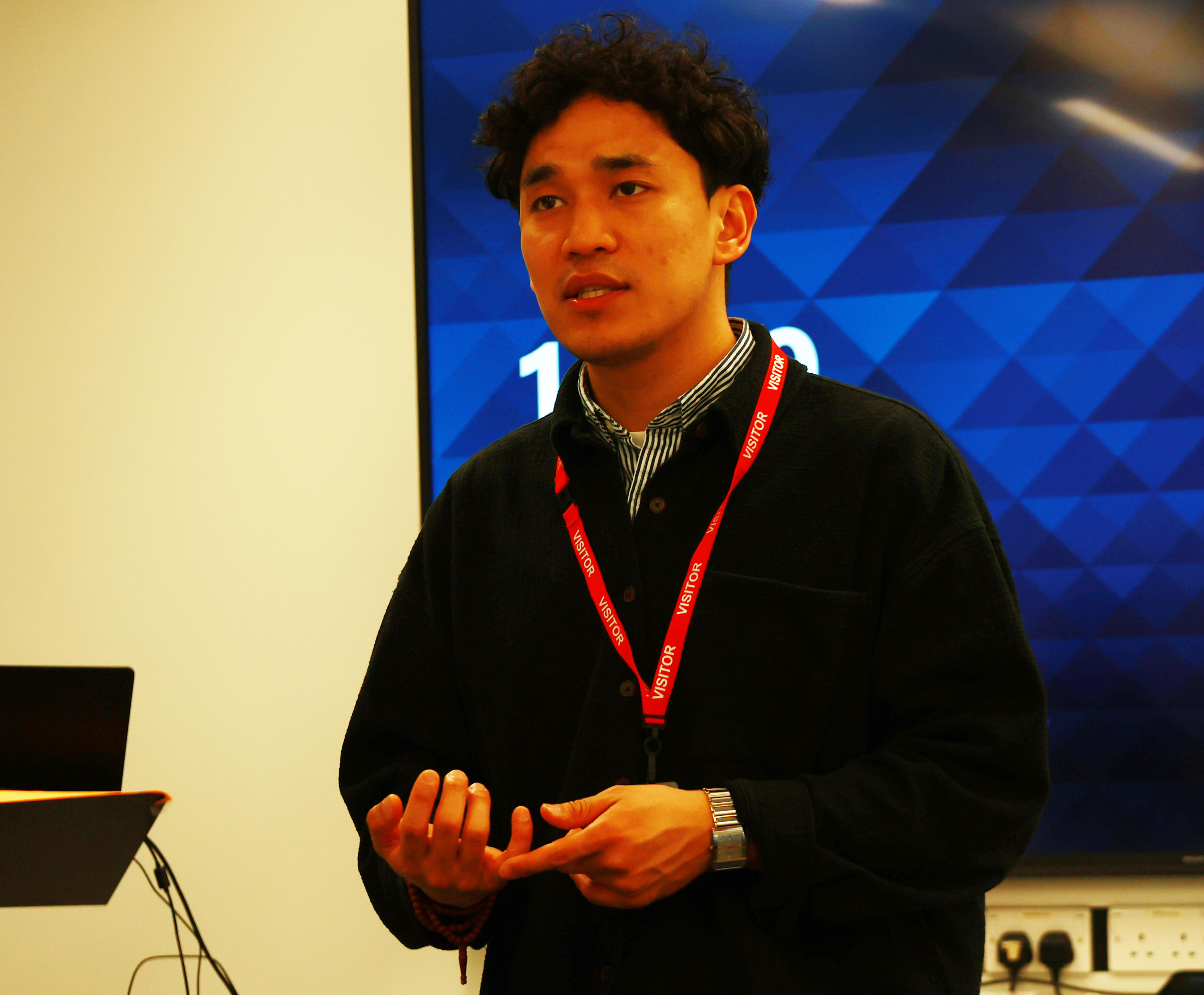
At the LIGHT research programme’s annual meeting (27 February – 3 March 2023) in Liverpool, the LIGHT research, research uptake, and communications teams met Tenzin Kunor. Tenzin is a survivor of tuberculosis (TB) and vocal TB advocate. He told his story of how he had experienced TB and the challenges associated with testing and treatment and how this had inspired him to become an advocate locally and globally. He started a peer support network for people with TB and has interviewed other people with TB capturing illness narratives from the perspective of affected individuals. Tenzin’s presence and voice reminds academics about their limitations as professionals in speaking for affected communities and the importance of intentionally engaging with people and communities affected by TB in research and advocacy.
Like Tenzin, men in many settings around the globe are more likely to become ill with TB than women. There has been wider recognition of gender disparities in TB and the role gender plays in driving TB disease and mortality, including men’s limited access to TB care. High incidence of TB disease in men goes hand in hand with increased burden of caring, coping, and compensating among women. Action and funding for gender-responsive – ideally gender-transformative – TB prevention and care has been limited, yet is key, not only from the perspective of justice and equity, but also as an essential component to ending the TB epidemic.
Tenzin’s story – both his experience of living with TB and supporting others with TB – calls for person-centred holistic TB prevention and care. Gender-related advocacy and strategies are too often seen as a zero-sum game. Gender responsiveness is not a question of prioritising one group over another, e.g., men over women, or adults over children. Gender-responsive and person-centred programming recognises different barriers and needs and makes space for co-creating synergistic responses to work towards a world where one’s gender does not impact their health outcomes.
Future policy reforms and investments required to end TB will be shaped by the 2023 United Nations High Level Meeting on TB (UNHLM on TB). The success of the meeting relies on robust engagement with national decision makers in the run up to the event, scheduled to take place on 22 September 2023. Academics and healthcare workers, who played a crucial role at the last UNHLM on TB in 2018, aim to engage effectively again at this year’s UNHLM on TB. With an even busier international agenda, early engagement will be key to ensure organised and representative key asks. Meeting Tenzin reminds us of the need for better coordination between academics, healthcare workers, TB survivors, and TB advocates unlocking chances for better outcomes.
Academics and healthcare professionals working in partnership with TB survivors and advocates can accelerate action for those in most need of innovations in TB care and prevention. People with TB have a critical role to play from research programmes right through to multi-sectoral hearings at the United Nations. The voices of people with TB need to be included from the start of a research programme to understand, learn, and co-develop the research and to ensure findings are co-created, culturally relevant and owned by the community for person-centred policy and practice that will end TB.
Authors
Dr Kerry Millington is a Research Uptake Manager on the LIGHT research programme and co-Chair of the UK Academics and Professionals to End TB network. Kerry has worked in academia for 20 years, at the University of Oxford, Imperial College London and now at the Liverpool School of Tropical Medicine. She works to support the use of learning and evidence to improve the impact of development policy and programmes.
Tenzin Kunor is a multi-drug resistant TB survivor and a leader for We Are TB, a TB survivor-led advocacy and support organisation in the United States. Tenzin has a passion for access and equity in health and higher education. He was named a 2021 US CDC TB Elimination Champion for his visionary role in the creation of the We Are TB Support Space, a programme to support TB patients and survivors during the COVID-19 pandemic. He also serves as a member of the WHO Civil Society Task Force on TB and is a TB Elimination Alliance Mini-Grant recipient for a project addressing latent TB infection within the Tibetan American community. Tenzin is currently studying Public Health at the London School of Hygiene and Tropical Medicine.